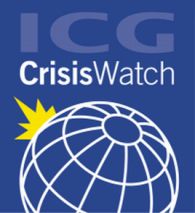International Crisis Group – Côte d’Ivoire: Is War the Only Option?
INTERNATIONAL CRISIS GROUP – NEW REPORT
Côte d’Ivoire: Is War the Only Option?
Pour lire ce communiqué de presse en français cliquez ici
Dakar/Brussels, 3 March 2011: Côte d’Ivoire is on the verge of a new civil war. This tragedy can only be avoided if Africans and the wider international community stand firm behind the democratically elected president, Alassane Ouattara, and he launches an initiative for reconciliation and a transitional government of national unity.
Côte d’Ivoire: Is War the Only Option?,the latest International Crisis Group report, examines the escalation of political violence and armed confrontations since Laurent Gbagbo refused to accept defeat in the November presidential election and has sought to retain office by manipulating institutions and violence. The report says war is imminent, with Gbagbo’s army and militias already beginning to clash with the former insurgent Forces Nouvelles in Abidjan and the west of the country, close to the border with Liberia.
The requirements to avoid a disastrous new conflict include Gbagbo stepping down; Ouattara offering to negotiate, with civil society help, an agreement for unity, national reconciliation and an interim transitional government with him at its head (but without the irreconcilable former president); the UN peace-keeping mission standing firm to carry out its civilian protection mandate; and the international community unequivocally supporting any decisions of the Economic Community of West African States (ECOWAS), including deployment of a military mission.
“The Gbagbo regime is a serious threat to peace, security and stability in the whole West African region”, says Rinaldo Depagne, Crisis Group’s West Africa Senior Analyst. “Any proposal to end the crisis that endorses or extends the Gbagbo presidency would only prolong the chaos and increase the risks”.
The election was part of a peace process that began after the September 2002 rebellion and was endorsed by several accords, the latest the 2007 Ouagadougou Political Agreement that all candidates, including Gbagbo, accepted and that set out compromises on organisation and security for the balloting. Ouattara won the run-off with a margin of more than 350,000 votes over Gbagbo.
The UN certified that result, but Gbagbo used the country’s highest court to throw out votes arbitrarily so he could stage a constitutional coup. Since then, he has relied on violence and ultra-nationalist rhetoric to cling to power. Over 300 people have been killed, dozens raped and many more abducted and disappeared by security forces. ECOWAS and the African Union (AU) have recognised Ouattara as president-elect and asked Gbagbo to step down, but he is apparently prepared to resist to the end, even if it means throwing Côte d’Ivoire into anarchy, war and economic disaster with terrible consequences for the entire region.
The international community has an important role to play in assuring a peaceful outcome. The UN Security Counsel must support the UN Operation in Côte d’Ivoire (UNOCI) and encourage it to use all necessary means to accomplish its mandate. A new list of Ivorians subject to targeted sanctions should be developed, and the illegitimate Gbagbo regime’s sources of finance should be examined. African states in particular need to show unity, and in particular South Africa should support ECOWAS efforts to remove Gbagbo and install Ouattara rather than pursue dangerously mistaken power sharing notions.
“The most likely scenario is an armed conflict involving massive violence against civilians that could provoke unilateral military intervention by neighbours”, says Crisis Group West Africa Project Director Gilles Yabi. “To prevent this, ECOWAS must reclaim responsibility for political and military management of the crisis, with the unequivocal support of the AU and the UN”.
To support our work in Africa and around the world, please click here.
Read the full Crisis Group report on our website: http://www.crisisgroup.org
Andrew Stroehlein (Brussels) +32 (0) 2 541 16 35
Kimberly Abbott (Washington) +1 202 785 1602
To contact Crisis Group media please click here
The International Crisis Group (Crisis Group) is an independent, non-profit, non-governmental organisation covering some 60 crisis-affected countries and territories across four continents, working through field-based analysis and high-level advocacy to prevent and resolve deadly conflict.

